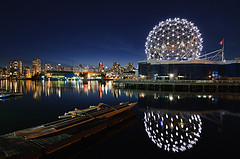Robert Romano
10/24/16
Intd: Science Writing
Approximately 200 words
The Clan of One Breasted Women
The family of Terry Tempest Williams was severely crippled by the devastating disease of breast cancer and Williams did not know why breast cancer was killing her family. The government was testing nuclear bombs near her town and the radiation was having devastating effects on the town. Eventually, a lawsuit was filed against the government, but the government pleaded for “sovereign immunity,” which meant that the king can do no wrong. Williams was raised as a Mormon and a big law in her family was to not ask questions or “not to rock the boat.” Finally, after William’s father had confirmed that a flash of light that Williams had saw was a bomb being tested, she knew it was time to speak up. She did this by writing a book, The Refuge, and in March 1988 she crossed the Nevada Test Site line and entered the town of Mercury.
I can relate to the experiences of Williams because I witnessed a couple of my family members pass away from the disastrous effects of smoking cigarettes. I can relate to her because when my family members smoked, cigarettes were not yet known to the public as harmful carcinogens.
